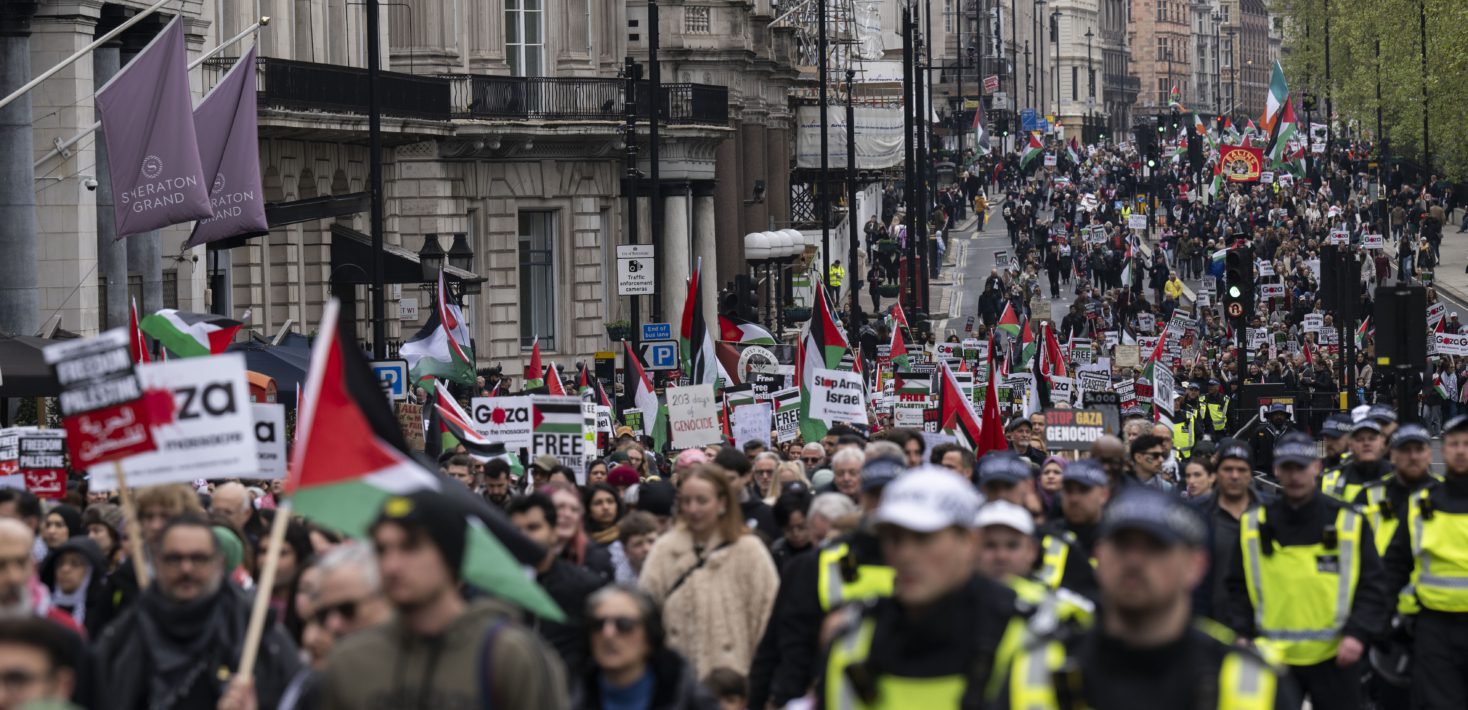Authorities must refrain from cracking down on peaceful protesters, Amnesty International said, ahead of events and demonstrations planned throughout Europe to commemorate Nakba Remembrance Day on or around 15 May.
Over the past six months, there have been alarming attempts by authorities across Europe to silence those who speak out against the killing by Israel of tens of thousands of Palestinians in Gaza, dare to criticize crimes and violations by Israeli forces, or highlight the risk of genocide. Law enforcement officers across Europe have also targeted people who have spoken out against states’ policies, including the ongoing provision of arms to Israel for use in its unlawful attacks in the occupied Gaza Strip.
Public assemblies, meetings and cultural events organized across Europe denouncing Israel’s policies on Gaza have been cancelled or banned, having a ‘chilling effect’ that is deterring other expressions of solidarity with Palestinians’ human rights.
Authorities across Europe must not use unlawful force against peaceful protestors
Erika Guevara-Rosas, Senior Director for Research, Advocacy, Policy & Campaigns
“Authorities across Europe must not use unlawful force against peaceful protestors. They must also immediately stop using any stigmatizing and discriminatory rhetoric against protestors and imposing blanket bans on assemblies as we approach Nakba Remembrance Day. Blanket bans on demonstrations – a disproportionate measure infringing on the right to peaceful assembly – and other repressive policies used in the past must not be repeated again,” said Erika Guevara-Rosas, Amnesty International’s Senior Director for Research, Advocacy, Policy and Campaigns.
“Academic institutions, cultural spaces and event venues must also resist political pressure and avoid discriminating against peaceful organizers and protesters, who have the right to express solidarity with Palestinians or criticize Israeli state policies that flagrantly violate Palestinian human rights.”
Peaceful demonstrations, sit-ins, university encampments and academic forums in solidarity with Palestinians are methods of protest in exercise of the rights to freedom of expression and peaceful assembly, which are protected under international human rights law. People of all backgrounds and faiths have been moved to use peaceful protest to voice their grievances against their governments’ actions in support of Israel’s atrocity crimes and their lack of meaningful steps to prevent grave violations of international humanitarian and human rights law, including genocide, as indicated by the International Court of Justice.
Peaceful protest is an indispensable tool to demand an immediate ceasefire, to demand justice for Palestinians and hold the state of Israel accountable for its protracted violations of international law
Erika Guevara-Rosas
“Peaceful protest is an indispensable tool to demand an immediate ceasefire, to demand justice for Palestinians and hold the state of Israel accountable for its protracted violations of international law, including the decades long denial of the right of return of Palestinians forcibly displaced, deported and dispossessed since 1948,” said Erika Guevara-Rosas.
“In the face of the current risk of genocide and the famine that Palestinians in Gaza are being subjected to, it is even more important that authorities allow people to express their solidarity with Palestinians for this year’s Nakba Remembrance Day and beyond by protecting their rights to freedom of expression, peaceful assembly and to non-discrimination.”
Regretfully, despite the absence of solid evidence, some European states have contributed to the dire humanitarian situation of Palestinians in Gaza by discrediting and cutting off vital lifesaving aid to UNRWA, leaving people trapped without access to food or clean water while being bombarded by arms and ammunition supplied by some European states to Israel. As a result also of public campaigns, some states have resumed funding to UNRWA.
Background
The rights to freedom of expression and peaceful assembly are protected under international human rights law and extend to expression that may be regarded as shocking, offensive, or disturbing. The authorities must ensure that people are able to exercise their rights without discrimination or fear of reprisals.
Any interference with these rights must be compliant with international human rights law and not based on broad national legislation, policy or harmful assumptions and stereotypes. Restrictions need to be necessary and proportionate to a legitimate aim and must be construed as narrowly as possible. The rights to freedom of expression and peaceful assembly are central to living in an open and fair society where defending human rights is vital in holding the powerful to account.


